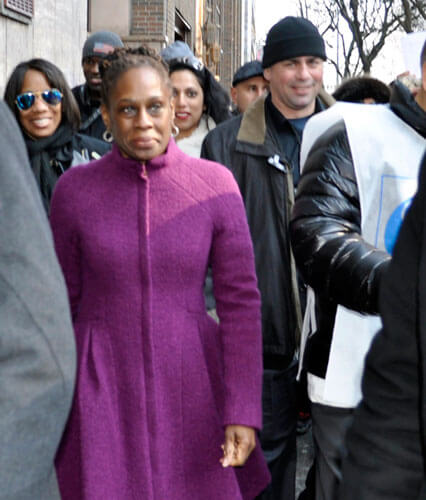Imagine one day devoted to celebrating women their gender.
Not Mothers’ Day — which excludes a segment who might be childless or motherless but a single calendar day half the species are able to exalt with pride the power of being female and the endless opportunities of claiming entitlement to a myriad of social, economic, political and cultural privileges.
That day is here.
It is March 8, a date globally recognized as International Women’s Day.
First celebrated here in 1908 with a march of unity by 1500 women, globally now many more encourage employers to laud outstanding workers with either tangible or intangible tokens of appreciation and offer niceties of encouragement.
As a matter of fact, in more than a few countries March 8 is an official holiday.
Women are known on that date to caucus for gender parity, empower other women, celebrate the achievements of women in the workplace and many display solidarity by wearing the color purple.
What the day actually signifies is the hard-fought ability women have traversed in order to strive, survive and overcome despite resistance and adversity.
The fact the day arrives at the start of Women’s History Month – and at the end of a work week finds this Insider obligated to spotlight a woman who blazed a trail for her race and gender in journalism.
Her name is Charlotta Bass.
And if the name does not resonate with familiarity, part of the reason is that schools continue to educate without inclusion of diverse and accurate attention to historical documentation.
Perhaps, the names Joseph Pulitzer, William Randolph Hearst, Rupert Murdoch, Hugh Hefner and other white, male media entrepreneurs, represent publishers well-documented for their enterprising and even brilliant contributions to an industry which begged attention in various genres.
Bass is neither white nor male, she is a double minority who toiled in her profession but never acquired the publicity nor wealth her counterparts did.
She was Black and not only reported news but published her own newspaper.
Perhaps the fact she was Black might have disqualified her mention in text books. However, the Sumter, South Carolina born, Black woman who lived to age 95 and died in 1969 emerged the very first African American woman publisher of a newspaper in the United States.
That she envisioned a Black press devoted to empowerment of a designated, segregated group must have been unimaginable to the haughty, males – Black and Caucasian – who decided credible or fake news.
In 1912 she took control of the Eagle, renamed it the California Eagle and immediately revamped the pages to spotlight police brutality, white supremacy, the Ku Klux Klan, discrimination in housing, employment, education, immigration, unfairness in media and even highlighted atrocities in South Africa related to apartheid.
She championed the causes of women and advocated for Black-owned businesses.
Truth be told she successfully executed her job voicing the concerns of the voiceless by advocating as a Civil Rights activist.
In her editorial columns “On the Sidewalk,” she often excoriated corrupt politicians resulting with a circulation that swelled to 60,000 making it the largest Black newspaper on the west coast.
After 40 years of ownership, she sold the paper in 1951.
Bass was quoted in her autobiography “Forty Years” saying: “It has been a good life that I have had, though a very hard one. And as I think back I know that it is the only kind of life: in serving ones fellow man one serves herself best….”
Her life was no easy path, she was branded a Communist, hounded by the Federal Bureau of Investigation (FBI) and targeted with suspicions mounted by McCarthyism.
By the time she sold the California Eagle she was immersed in the politic of her landscape.
Her next mission was to run for a national office.
As a member of the Progressive Party she united with the white party leader to make up the presidential ticket running as vice president.
With that broad-based, political thrust Bass emerged the very first of her race and gender to seek the high office.
History must now claim Charlotta Bass not only the Pied Piper to inform a demographic hungry for relevant and relatable news but a pioneering Black, female vice presidential candidate who sought to represent America.
If only for a day, Friday, International Women’s Day take note of the contribution of the Black press, women and the enterprising endeavors of the gender.
Catch You On The Inside!

























